MOVIE REVIEW – The Fabelmans is a middle-class Jewish family living in different cities in the mid-20th century. Steven Spielberg’s film about them (fictional but largely autobiographical) focuses on the conflict between the desire for artistic self-expression and personal responsibility, and the mysteries of talent and happiness.
The matriarch, Mitzi (Michelle Williams) is a former concert pianist turned housewife and piano teacher. Patriarch Burt (Paul Dano) is a scientist who works for various technology companies and enjoys making home movies. One night, Mitzi and Burt take their eight-year-old son Sammy (Mateo Zoryon Francis-DeFord) to his first movie experience, The Greatest Show on Earth. The film ends with a spectacular train crash shot in miniature. Sammy becomes obsessed with the scene and requests a train set, which he smashes in an attempt to recreate the scene, angering his father, for whom the only lesson of the incident is that Sammy does not appreciate pretty things. The mother suggests that the son record the train crash with his father’s film camera so that he can watch the “tragedy” over and over again, rather than beating the trains until they crash. Sammy is a child prodigy, and perhaps a genius. Mitzi can tell this from watching the boy’s first film, which captures the accident from multiple, dynamic angles and uses editing to build tension and set up visual punchlines.
It’s only Spielberg’s childhood, it’s so much about the same thing…
But it’s not just a film about how someone who is already good at something gets better at it. It’s about the difficulties of marriage, parenthood and having children. The film is also about the miracle of talent, an idea that is explored not only through the central trio of Sammy, Mitzi and Burt (who is truly gifted as a scientist and engineer), but also through a secondary character, Burt’s best friend Benny Loewy (Seth Rogen), who spends so much time in their house that he becomes almost part of the family.
It is obvious that Mitzi is more “friends” with Benny than with Burt (Paul Dano is simply brilliant, another masterful, completely different performance after his Batman serial killer Rébus), who is a good husband and father, but basically unexciting (and he knows it) and can be boringly controlling. Benny is wholesome and hearty, a ladies’ man, witty, self-deprecating and energetic. He’s as talented a partner and parent as Burt in science, Sammy in filmmaking, and Mitzi in performance, until she gave it up.
In a typical scene, during The Fabelmans camping trip, Burt is talking to the kids about how to start a campfire, while Benny, in the background, uses his physical strength to pull back the tree branch Mitzi has been clinging to and then lets go to make a makeshift playground swing. He knows what he wants and what this family needs. In some ways, he is a real bohemian “artist” himself…
Where does real talent come from? We may never know…
Where does the “divine” gift of talent come from? Not just from genes, the psyche, conditioning or trauma. No, its origin is mysterious, even mystical. It comes out of nowhere, like the shark in Spielberg’s The Shark, the UFOs in Close Encounters of the Third Kind, or the wonders and disasters of the War of the Worlds, the Indiana Jones and Jurassic Park films, and the eruptions of blood and cruelty in Spielberg’s war-history epics.
One night Sammy’s uncle Boris (Judd Hirsch), a circus performer and storyteller, lays it out for him: people who know they are talented must commit, not waste; but the more fiercely they commit, the more they may neglect their loved ones or feel neglected (which can trigger guilt). It’s a serious, eternal inner conflict that often plagues true artists.
Sammy realises early on – or perhaps instinctively knows – that the film camera can be used not only to tell stories and take pretty pictures, but also to win friends; to appease or manipulate enemies; woo prospective love partners; charm and humiliate; show people a better self they want to become; protect the artist from pain in painful moments; smooth over or cover up the truth, and if necessary: lie blatantly. Because when we are in the cinema, we all love it when we are “projected” in both senses of the word…
This is how a young budding fan became a famous director…
Sammy continues to hone his skills as an adolescent (when he is taken over by a thoughtful and highly refined young actor named Gabriel LaBelle). He is given better filmmaking equipment to do more. When he’s shooting a western film with a group of neighborhood boys, he notices that his mother’s high-heeled shoes have punctured the music score dropped on the living room carpet, giving him the idea that he can punch holes in the filmstrip to make it look like the boys’ toy guns are firing blanks, just like in a real movie. When Sammy directs a World War II combat film starring his fellow scouts, he earns a merit badge for photography, in large part because he’s not only a technician but also a showman who has studied the structure of the films he loves (John Ford’s The Man Who Shot Liberty Valance is great, and happens to be about the tension between reality and myth).
Then Burt moves the family to California. He and his siblings are apparently the only Jewish children in a school populated by tall, boringly handsome (and at the same time dumb and conceited) boys, some of whom torment Sammy because of his heritage. There is a rift in the family, and though no one’s creativity is cracked, various manifestations of the Fabelman talent continue to stretch it, creating tense moments in which the characters must decide whether to reveal an important but painful truth or keep it to themselves in the name of family peace (a version of Ford’s famous line in “Valance” – when legend becomes fact, print that legend).
Can we be happy without it being at the expense of others?
The Fabelmans ends before it gets to the now legendary story of Spielberg’s 19-year-old Joan Crawford in an episode of The Night Gallery. Still, it makes up for an equally thrilling moment: Spielberg’s brief encounter with his hero Ford (played by David Lynch in a masterful cast), who spends almost as much time smoking a cigar as he does talk to his visitor. Of course, Spielberg’s personal story is much more than that.
But it’s a film, and films can’t cover everything, just like books or plays. Spielberg and his co-writer Tony Kushner (who worked with Spielberg on Munich, Lincoln and West Side Story) avoid the fundamental flaw that holds back so many film biographies (and autobiographies): others try to cram every moment that people have heard about elsewhere into a solid two hours, making it impossible to really linger on any moment or era. Kushner and Spielberg (who takes on screenwriting for the first time since A.I.) turn the director’s life into a work of fiction. This allows them to both pose the rhetorical question, and at the same time render uninteresting the one that would have been on the minds of the audience anyway: how much of this actually happened? And it allows them to focus on a few landmark moments, reimagined for a Hollywood feature film aimed at the widest possible audience, and tie everything back to a coherent question that all viewers can identify with: how do we define happiness? And can it be achieved without harming anyone else?
Three types of characters, all focused on the search for happiness
The answer, as it turns out, is no. All The Fabelmans characters fall into three categories. Some recognize that they are unhappy and do everything they can to change their situation. Others remain unhappy because they are not brave (or ruthless) enough to take the necessary steps. And a lucky few who don’t worry about it because they are already happy.
Kushner and Spielberg form much of the story into self-contained scenes with a beginning, middle and end, like a play. But of course, Spielberg does not shoot anything in a clichéd “theatrical” way, on the contrary, he proves once again what Orson Welles had already noticed about him early in his career: he was the first great director whose visual sense was not shaped by the “proscenium arch“. Much of the film is told in long takes that don’t seem ostentatious, because Spielberg’s blocking always serves to deepen the characters and illustrate the themes. Consider the pre-cinematic opening scene, at the end of which young Sammy is silhouetted in the middle of the frame: a human dividing line, with his father (who talks about cinema in terms of the permanence of photography and vision) on one side and his mother (who tells him that films are primarily about feelings and dreams) on the other.
Ultimately, it all comes down to people finding out who they are and then deciding whether or not to fully commit to the path they believe will bring them the greatest happiness. The fact that the film leaves deep questions unresolved, and presents all the related philosophical and aesthetic issues in a playful way (the closing shot is a spectacular gag!), makes the experience Spielberg’s quintessential. At first you think this is just Spielberg’s autobiography, but that’s only on the surface. But the longer you watch it, the more you realize how many hidden gifts and great philosophical messages there are.
-BadSector-
The Fabelmans
Direction - 9.4
Actors - 9.2
Story - 9.5
Visuals/Music/Sounds - 9.2
Ambience - 9.4
9.3
AWESOME
Steven Spielberg's latest film is the story of his childhood (but with a different cast), but it's also a brilliant, deeply human film with great messages about talent, self-discovery and the pursuit of happiness. Many people might not have thought that the director of Jaws, the Indiana Jones films or Jurassic Park could have made a film like this, but it just goes to show that the Master can still surprise and enchant us time and time again. Because real cinema is all about magic, and Spielberg is still one of the greatest magicians...

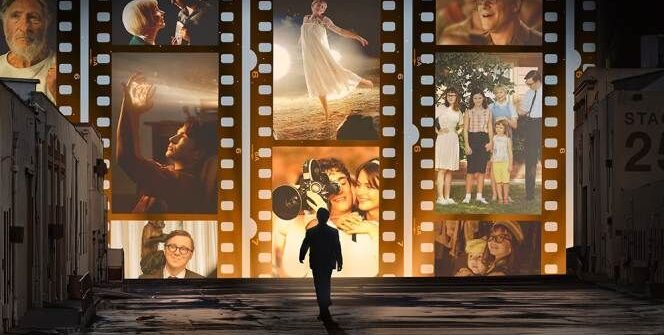
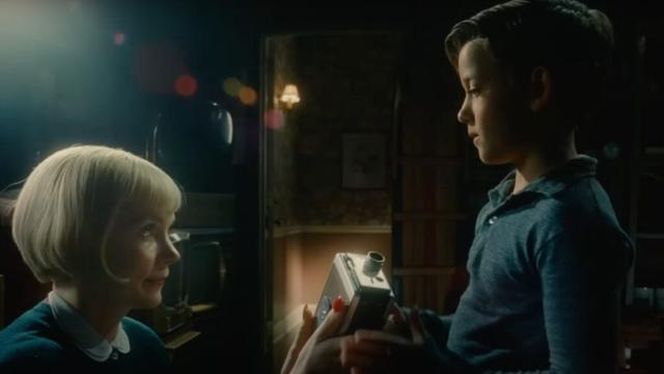
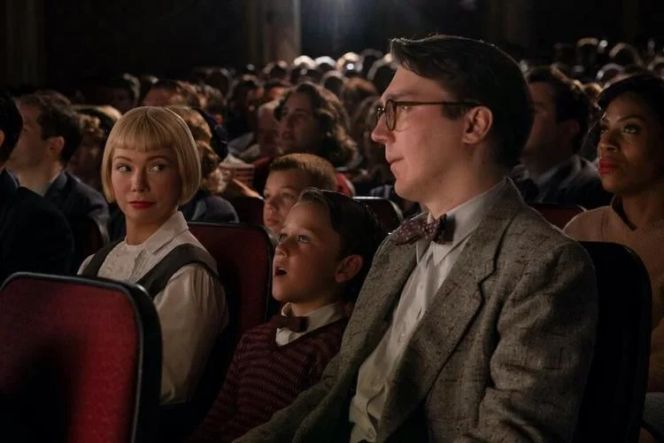
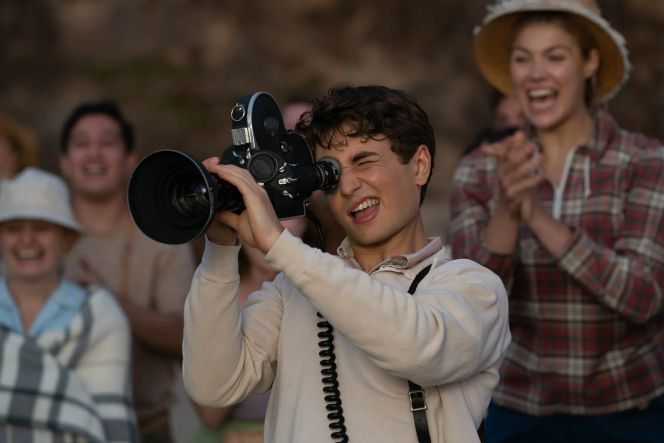
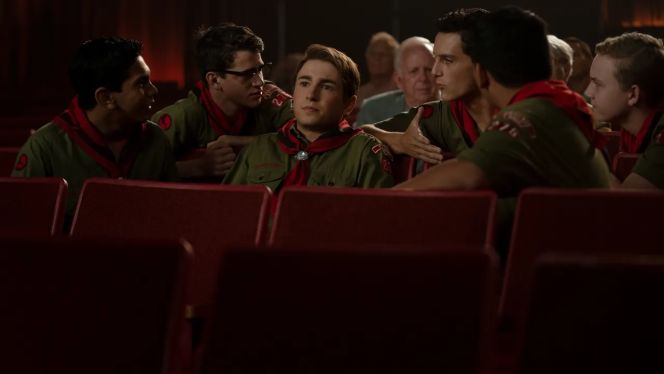

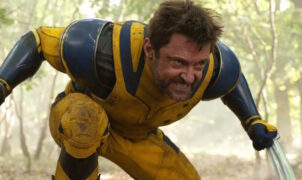
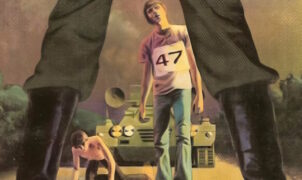



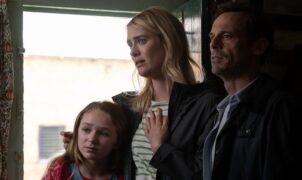

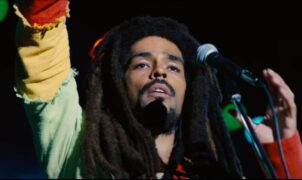
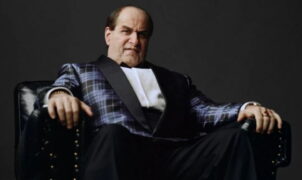




Leave a Reply